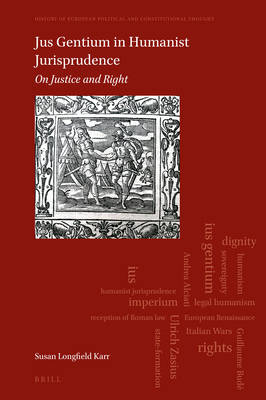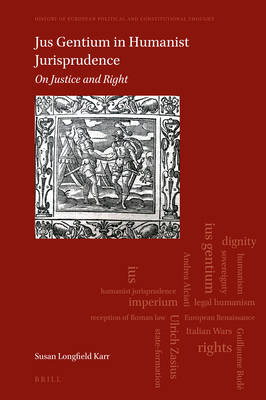
- Afhalen na 1 uur in een winkel met voorraad
- Gratis thuislevering in België vanaf € 30
- Ruim aanbod met 7 miljoen producten
- Afhalen na 1 uur in een winkel met voorraad
- Gratis thuislevering in België vanaf € 30
- Ruim aanbod met 7 miljoen producten
Zoeken
€ 236,95
+ 473 punten
Omschrijving
This book explores how the fathers of humanist jurisprudence contributed to the emergence of ius gentium as the common law not simply of Europe, but of all mankind, in the early sixteenth century. They did so by so thoroughly reinterpreting terms, idioms, and categories preserved within Justinian's Digest that they fundamentally transformed them to address sources and limits of political and legal authority in the broader context of early-modern state formation.
In the process, they offered theories of universal jurisprudence grounded in the attributes and actions of man and states that anticipated some of the most salient features of modern sovereignty and rights. Theories that we tend to identify with post-Reformation political and legal thought, rather than the early Renaissance.
In the process, they offered theories of universal jurisprudence grounded in the attributes and actions of man and states that anticipated some of the most salient features of modern sovereignty and rights. Theories that we tend to identify with post-Reformation political and legal thought, rather than the early Renaissance.
Specificaties
Betrokkenen
- Auteur(s):
- Uitgeverij:
Inhoud
- Aantal bladzijden:
- 412
- Taal:
- Engels
- Reeks:
- Reeksnummer:
- nr. 9
Eigenschappen
- Productcode (EAN):
- 9789004523661
- Verschijningsdatum:
- 30/09/2022
- Uitvoering:
- Hardcover
- Formaat:
- Genaaid
- Afmetingen:
- 155 mm x 235 mm
- Gewicht:
- 884 g

Alleen bij Standaard Boekhandel
+ 473 punten op je klantenkaart van Standaard Boekhandel
Beoordelingen
We publiceren alleen reviews die voldoen aan de voorwaarden voor reviews. Bekijk onze voorwaarden voor reviews.











